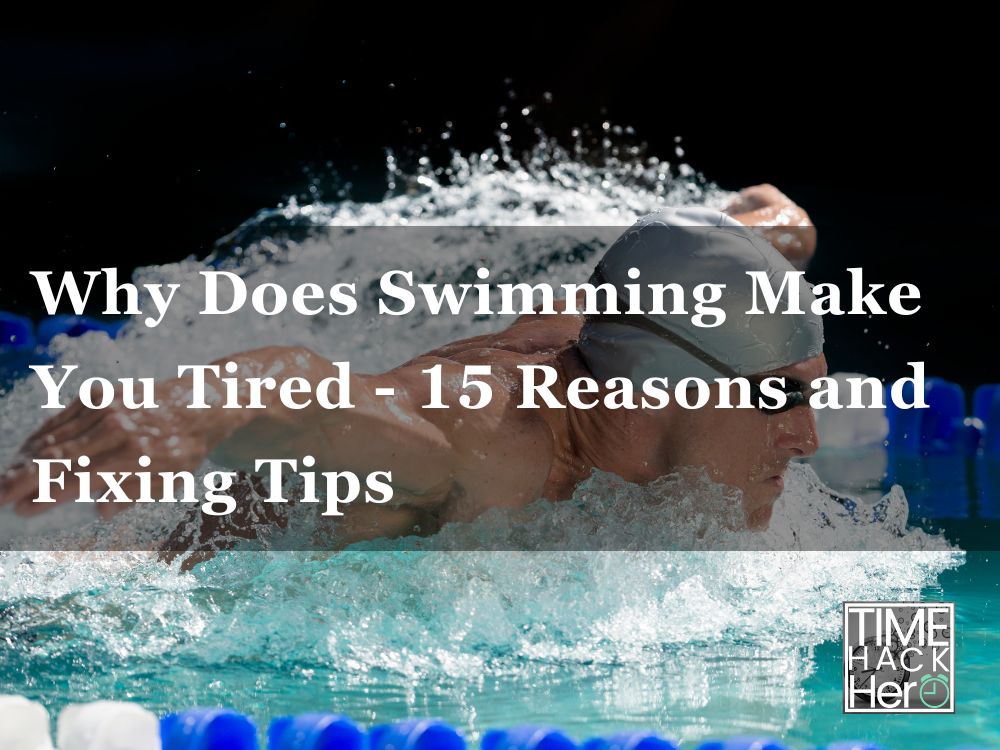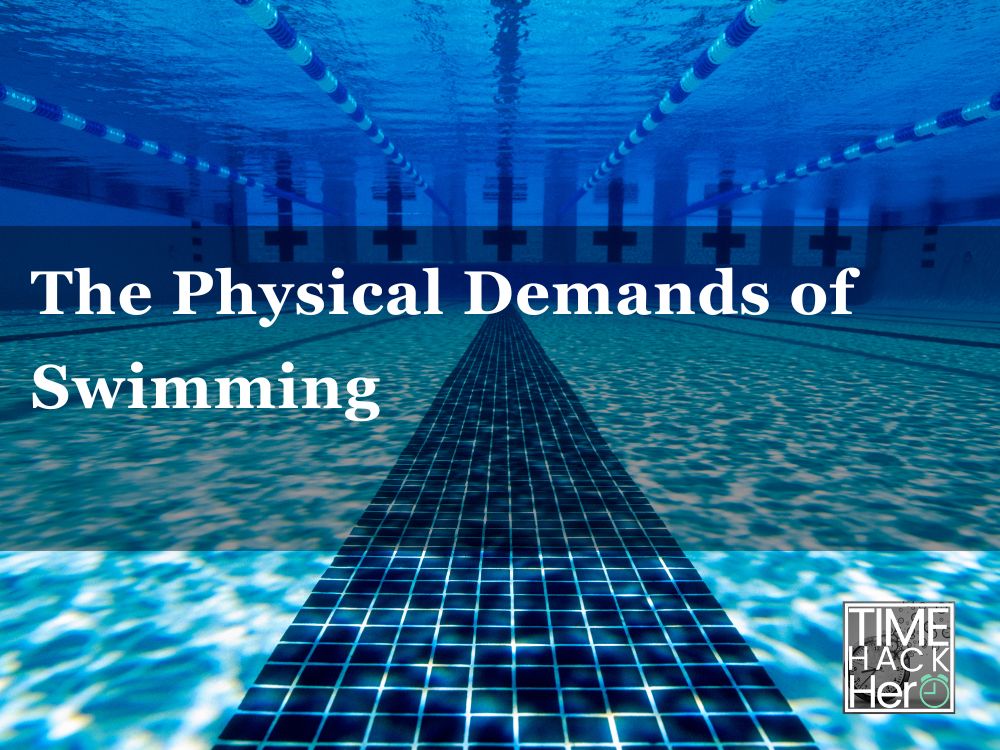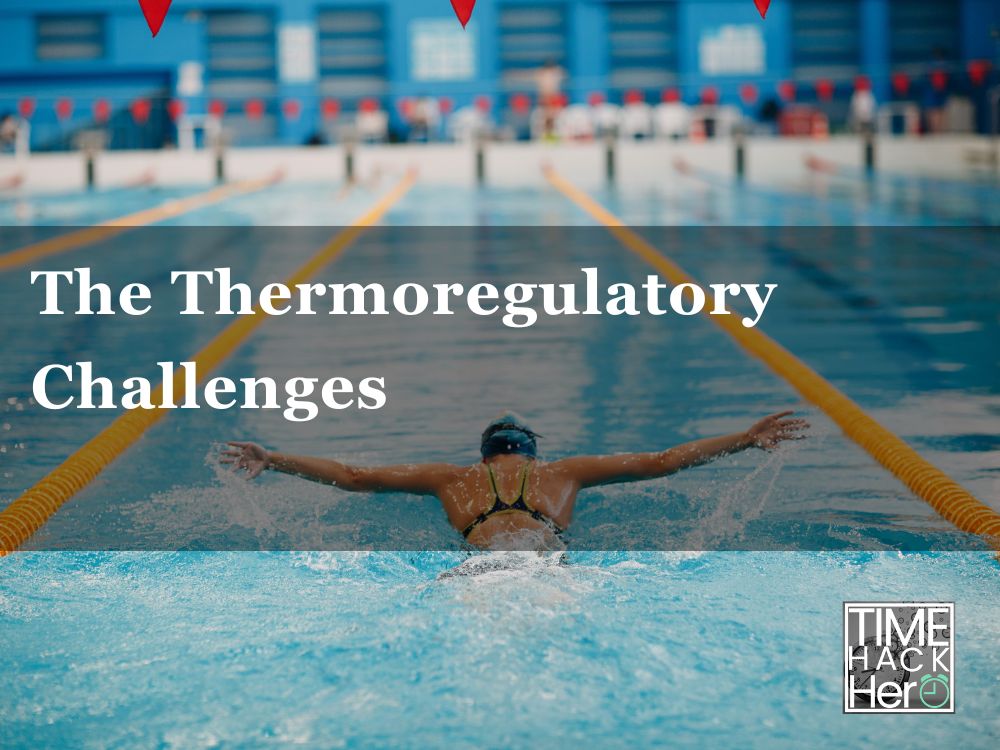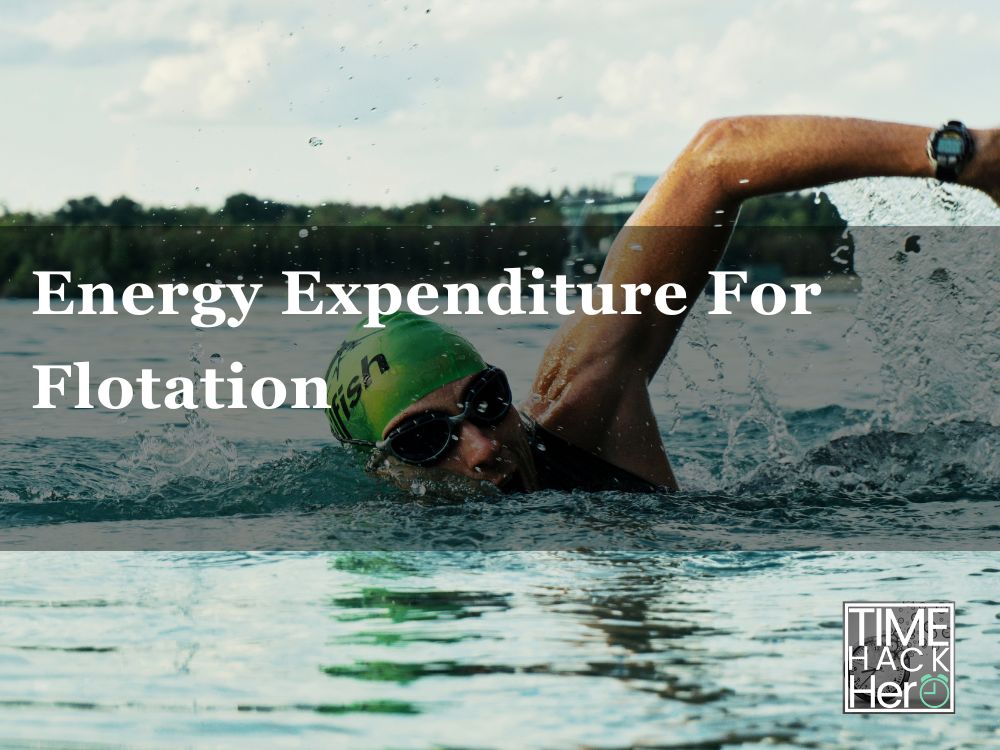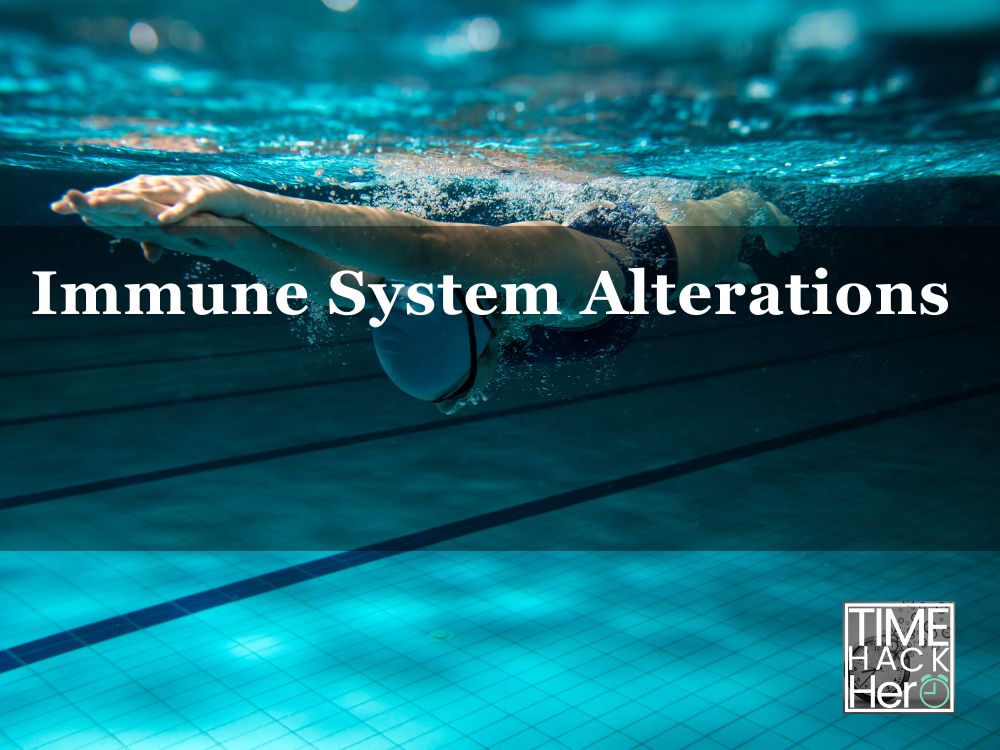It’s common to feel wiped out and fatigued after a swimming session, even if you’re in great shape. Unlike other exercise, swimming seems to zap energy levels disproportionately. If you find yourself exhausted after hours in the pool, there are a few reasons why swimming taxes the body more than other sports.
Table of Contents
Is This Normal?
Absolutely! Feeling tired after swimming is extremely normal. The unique cardiovascular and muscular demands of swimming make fatigue an expected response. However, chronic extreme exhaustion after laps may indicate issues like poor nutrition, dehydration, or overtraining.
Why Does Swimming Make You Tired?
What exactly makes swimming so tiring at times? Here are the primary factors:
| Cause | Explanation | Effect |
|---|---|---|
| Full body workout | Nearly all major muscles engaged | Widespread fatigue |
| Cardiovascular exercise | Strain on heart and lungs | Tired cardiorespiratory system |
| Anaerobic AND aerobic | Use of all energy systems | Zapped energy reserves |
| Resistance from water | Working against water resistance | Muscle fiber exhaustion |
| Heat loss | Rapid loss of body heat | Hypothermia and shivering |
| Vasoconstriction | Constricted blood vessels and circulation | Impaired oxygen/nutrient delivery |
| Hyperventilation | Excessive breathing | Respiratory muscle fatigue |
| Dehydration | Fluid loss thickens blood, reduces plasma | Heart must work harder |
| Horizontal body position | Unnatural prone position | Core/back exertion to stay afloat |
| Rotational movements | Unfamiliar twisting and rotating | Effortful on back and ab muscles |
| Fighting buoyancy | Resisting upper body buoyancy | Expending energy to stay balanced |
| Surfactant damage | Impaired lung surfactant | Greater infection risk |
| Latent virus reactivation | Immune suppression from exertion | Body works hard to keep latent viruses in check |
| Leukocyte damage | Free radicals destroy white blood cells | Decline in immune defenses |
The Physical Demands of Swimming
Swimming necessitates extensive physical exertion, which can certainly take a toll and zap your energy.
1. Full Body Workout
When you swim, nearly all of your major muscle groups are engaged, including:
- Arms and shoulders to propel you through the water
- Back and core to maintain proper form
- Legs for kicking
- Chest, shoulders and triceps to support the body position
Utilizing most of your musculature demands great effort and leaves many muscle groups fatigued. This overall workout stress across the entire body overwhelms your system.
2. Cardiovascular Exercise
Swimming requires considerable cardiorespiratory endurance to regularly pump your arms and legs while controlling your breathing rhythm.
The heart and lungs are put under significant strain during swimming. This intense cardiovascular workout tires out these critical organ systems.
3. Anaerobic AND Aerobic
Swimming uses both anaerobic (sprinting) and aerobic (distance) energy systems across changing intensities.
The combo anaerobic-aerobic workout taps into all your energy reserves, which accumulates high levels of fatigue.
4. Resistance Training
The water itself provides resistance on all your swimming movements, turning the pool into a giant resistance training machine.
This constant battle against resistance wears out your muscle fibers as you work against the water with each stroke.
The Thermoregulatory Challenges
Regulating body temperature during swimming also expends considerable energy that increases fatigue:
5. Heat Loss
Water conducts heat away from your body approximately 25 times faster than air. This rapid heat loss can lower core body temperature, causing you to feel tired as your body tries to warm back up.
6. Shivering
Your body responds to hypothermia through shivering and muscle contractions to generate warmth. But these involuntary movements also tire out your musculature.
7. Vasoconstriction
To reduce heat loss, blood vessels in the skin constrict to divert blood to the core and vital organs when swimming. This impaired circulation contributes to exhaustion.
8. Hyperventilation
Swimmers often hyperventilate and overbreathe due to anxiety about swimming and trying to optimize oxygen. But this excess respiration and tighter breathing tire out the respiratory muscles.
9. The Role of Dehydration
Maintaining hydration while swimming is crucial, but often overlooked. Dehydration leads to:
- Thickened blood – Less plasma volume makes the heart work harder to pump blood.
- Reduced blood flow – Less overall fluid lowers blood circulation.
- Impaired oxygen delivery – Dehydration reduces oxygen transported in the blood.
Together, these effects of dehydration significantly drain your energy as your body struggles to function with inadequate blood flow and oxygen delivery to muscles.
Energy Expenditure For Flotation
Staying afloat and maintaining proper positioning in the water also requires substantial energy expenditure:
10. Horizontal Body Position
The prone horizontal body position used in most swimming strokes is unnatural and gravity-fighting. Your core and back work extensively to keep your lower body from sinking.
11. Unaccustomed Rotational Movements
Rotating and twisting the torso involved in strokes like the butterfly, backstroke and freestyle demands focused effort from the abs and back muscles to execute these unfamiliar rotational movements.
12. Fighting Buoyancy
Particularly for fit swimmers with greater muscle mass, extra energy must be expended to resist upper body buoyancy and keep the lower body from rising to the surface.
Immune System Alterations
Extensive swimming can also impact your immune function, leading to increased fatigue:
13. Surfactant Damage
The air-water interface repeatedly damages pulmonary surfactant during breathing. Surfactant normally prevents lung tissue collapse. Impaired surfactant increases susceptibility to respiratory infections.
14. Chronic Latent Viruses
Latent viruses like cytomegalovirus (CMV) that establish lifelong infection can reactivate after intense swimming due to immune suppression. This taxes your system.
15. Destroyed Leukocytes
Free radical formation damages leukocytes after swimming. With reduced white blood cells, your immune defenses decline, contributing to exhaustion.
Other Factors That Can Increase Swim Fatigue
A few other variables may also play a role in swim-related tiredness:
- High mental effort to monitor breathing rhythm and technique
- Exposure to chemicals like chlorine and bromine
- Earlier morning workout times linked to greater exertion
- Insufficient calorie and carbohydrate intake to fuel intense swimming
- Overtraining with inadequate rest between difficult swim sessions
What are some consequences that can arise from post-swim fatigue?
What are some consequences that can arise from post-swim fatigue? Here are a few:
Impaired Performance in Other Sports
Swimmers often participate in other sports and exercise modalities. But insufficient recovery from swimming can hinder strength, speed, and stamina for activities like running, weightlifting, tennis, etc. due to lingering fatigue.
Increased Risk of Injury
Overuse injuries like rotator cuff strains and knee tendinitis become more likely if swimming-related fatigue is not managed properly. Fatigued muscles and joints are vulnerable to repetitive strain injuries.
Compromised Immune Function
Chronic or excessive fatigue from swimming places strain on the body that impairs immune defenses. This can make you more prone to illness following intense training and competitions during cold winter months.
Hindered Skill Development
Fatigue impedes your ability to focus on proper stroke mechanics and efficiency. Attempting to swim while tired often leads to reverting to poor technical habits. Sub-optimal skill development may occur.
Negative Effects on Growth
In adolescent swimmers, chronic fatigue from overtraining can actually stunt growth and development. Hormones promoting growth reduce when the body is under prolonged physical stress.
Mood Changes
Physical tiredness frequently manifests as mental irritability, crankiness, and generally low motivation and morale. Fatigue-related mood disruptions can reduce enjoyment of the sport over time.
Decreased Appetite
The hunger hormone, ghrelin, decreases after intense endurance exercise while leptin increases. These hormonal changes often suppress appetite after swimming, making it hard to eat adequately for recovery.
9 Tips to Prevent Post-Swim Fatigue
If swimming fatigue is hindering your performance or training, here are some methods to help overcome it:
Refuel After Each Session
Eat a mix of carbohydrates and protein within 30-60 minutes post-swim to replenish glycogen stores and aid muscle recovery. Hydrate properly too. Nutrition is key.
Monitor Overtraining
Schedule off days and avoid excessive distance, speed, and intensity every session. Vary workouts appropriately. Listen to your body and allow proper recovery between challenging sessions.
Strengthen Upper Body and Core
Follow a structured strength program for arms, chest, shoulders, and core 2-3 times per week to support muscles under heavy use while swimming. Strengthen weaknesses.
Use Fins Strategically
Occasionally using fins during warm-up, cool-down, and select sets reduces localized muscular strain and fatigue by relying more on your lower body for propulsion.
Assess Technique and Efficiency
fixing flaws in your stroke mechanics and developing an efficient stroke reduces energy expenditure and fatigue over time. Work on form and minimizing drag.
Rule Out Medical Issues
See a sports medicine doctor to check for underlying issues like anemia, low vitamin D, hypothyroidism, or other conditions that could exacerbate swimming fatigue.
Try Compression Garments
Wearing tight-fitting swimming garments may help reduce muscle vibration and fatigue. Proper fitting and high quality compression gear provides the best results.
Adjust Training Intensity and Volume
Closely monitor rate of perceived exertion during sets. Lower volume, intensity, or frequency if ordinary workouts start becoming excessively tiring.
Optimize Sleep Habits
Ensure you get adequate, high-quality sleep to allow your body to fully recover between challenging workouts. Sleep is crucial.
Signs of Overtraining
Make sure marathon swim sessions don’t put you into an overtrained state. Watch for these signs:
- Constant muscle soreness
- Decline in performance
- Increased injury risk
- Changes in appetite and sleep
- Irritability and mood changes
- Lack of energy and motivation
- Headaches or muscle cramps during workouts
If you experience these types of symptoms, cut back on swim volume and intensity and focus on active rest and recovery.
When To See A Doctor
See your physician if you experience:
- Fatigue lasting over 2 weeks
- Severe shortness of breath or chest pain during swim sessions
- Fever, chills or illness after swimming
- Swallowing pool water leading to diarrhea or vomiting
A respiratory infection, swimming-induced pulmonary edema or other medical issue could be exacerbating fatigue. Seek medical advice regarding any ongoing swimming-related exhaustion.
Conclusion
While some fatigue after swimming is perfectly normal, excessive and persistent tiredness can jeopardize performance goals. Look at your training load, nutrition, rest, and recovery habits if pool sessions continue leaving you drained. There are solutions. With attention to proper programming and bodily cues, swimming should invigorate you without crossing the fatigue line.
Frequently Asked Questions
How long after a swimming workout should fatigue subside?
Expect moderate tiredness for 1-2 hours post-swim. Lingering fatigue beyond 24 hours may signal overtraining or need for more rest. See a doctor if debilitating fatigue persists for days.
Will taking vitamin supplements reduce swimming fatigue?
Maybe. Vitamins C, D, and B12 support energy pathways. But get bloodwork done first to confirm a deficiency before supplementing. Mega-doses provide no benefit if levels are already optimal.
Does drinking caffeine help provide an energy boost before swimming?
A little caffeine 30-60 minutes pre-swim can enhance alertness and performance if you don’t overdo it. But avoid reliance on caffeine. Focus more on proper training, fueling and rest.
Will soaking in a cold tub after swimming help reduce fatigue?
Potentially. Cold water immersion constricts blood vessels, reducing swelling and inflammation that contribute to delayed onset muscle soreness and fatigue. But cold soaks aren’t for everyone.
Should I avoid eating 2-3 hours before swimming to prevent cramps?
No, avoid exercise fasted. Eat a carb-rich snack 1-2 hours pre-swim to fuel muscles and prevent energy crashes. Just avoid big meals right before swimming. Hydrate properly too.

